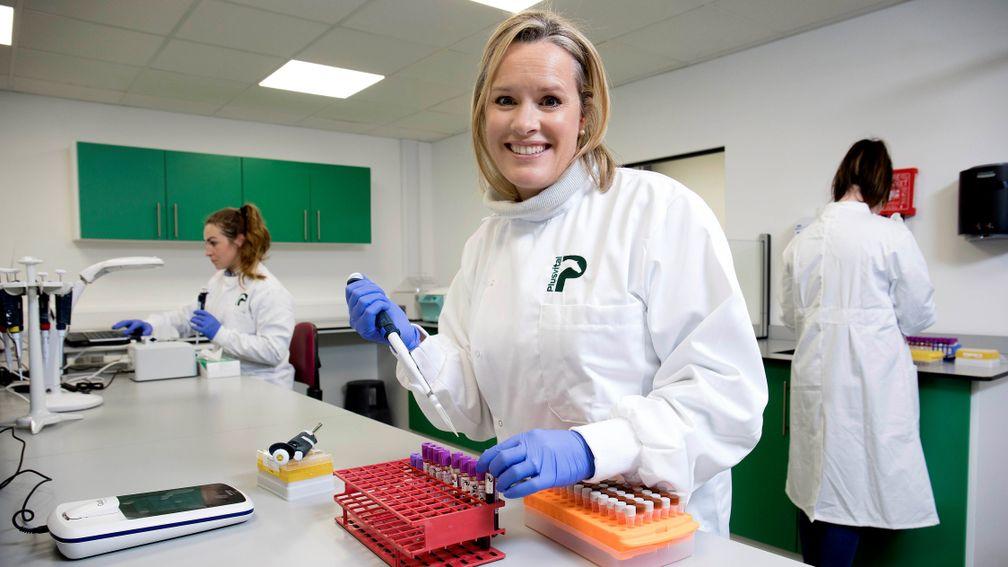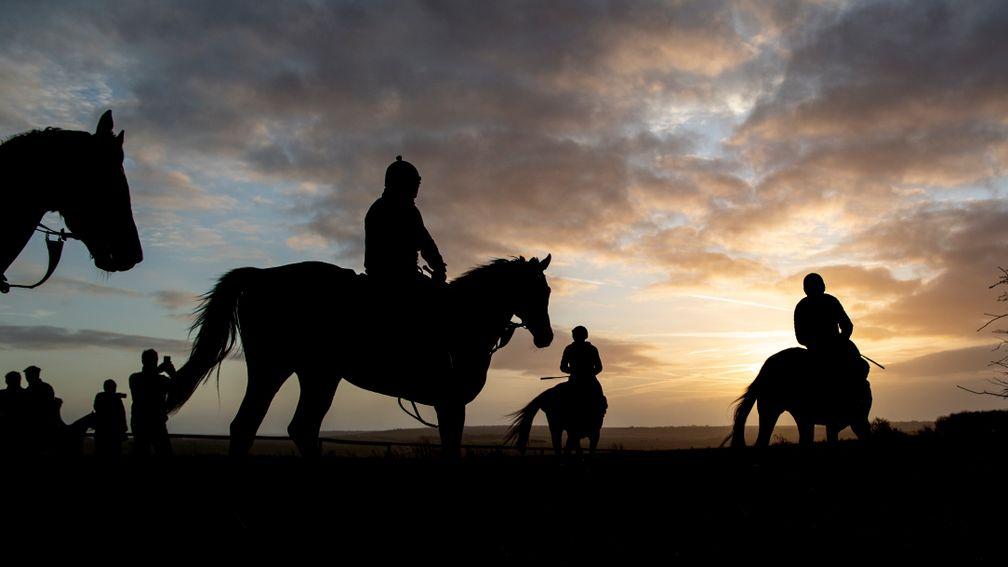'Some horses cope better than others' - new research published which discovers genes associated with stress

Scientists at University College Dublin and Plusvital Ltd, Ireland, have published fascinating new research in the journal Animal Genetics, which describes the discovery of genes that are associated with stress and coping in the training environment.
The article is titled ‘Integrative genomics analysis highlights functionally relevant genes for equine behaviour' and comes after a four-year PhD research project that examined the stress hormone cortisol and the results of a questionnaire in 100 yearlings as they encountered milestone events during their early training period.
Dr Amy Holtby, the lead scientist, said of the research: “The most stressful event for a young racehorse is the first time it is backed by a jockey, with studies showing that it causes the greatest cortisol response in the horse. Some horses cope better than others, with lower cortisol reactions.”
One key finding of the research was that observations of the yearlings’ behaviour by highly experienced handlers did not agree with the cortisol results, indicating that cortisol identifies a distinct aspect of the stress response that is not perceivable to handlers.
Senior scientist Professor Emmeline Hill said: “This means some horses experience stress without acting out, and this could have detrimental long-term effects if it cannot be managed appropriately. Identifying genetic markers for the stress response could therefore have value in identifying horses most susceptible to stress.”

The scientists also compared the genetic profiles of the yearlings who were best able to cope with early training to those less able to cope. They used genetic data from two different brain tissues that regulate the fear response and the modification of behaviour to pinpoint the genes that were most likely to impact on the ability to cope. This approach highlighted a set of genes that function in other species in social behaviour, suicide, stress-induced anxiety and depression, neurodevelopmental disorders, neuroinflammatory disease, fear-induced behaviours, and addiction.
The gene that was most important in the thoroughbred stress response was necdin. It is associated with temperament in cattle, measured as flight time - the time taken for an animal to reach a fixed distance following release from an enclosure. In mice the gene is associated with behaviour traits, and in humans it is associated with paranoia.
Dr Holtby said: "Everyone involved with racehorses recognises the importance of maintaining the mental well-being of their animals and balancing the training routine to keep them happy and engaged with their work. It is one of the most crucial aspects of training."
Professor Hill added: "Genetics doesn’t have all the answers, but our research provides a sound scientific basis for genetic screening tools to support the highest welfare standards for the thoroughbred.
"The ‘nurture’ aspect of behaviour is of course a major factor, with the management of the animal impacting on its temperament. Our research has revealed genetic markers that could be used to identify animals that will benefit most from more nuanced handling. In time these markers could also be developed into tests to inform breeding decisions."
Read more
Published on inNews
Last updated
- Breeding right to Blue Point sells for €430,000 on Darley winning bid platform
- Classic hero Metropolitan set for strong home support with Etreham busy at the sales
- 'It has been nothing short of incredible' - Grace Hamilton on Godolphin Flying Start experience
- ‘She’s one of the best two-year-olds in Europe’ - bluebloods set to go down a storm at Arqana Breeding Stock Sale
- HRI announces academy hurdles for unraced three-year-olds starting next season
- Breeding right to Blue Point sells for €430,000 on Darley winning bid platform
- Classic hero Metropolitan set for strong home support with Etreham busy at the sales
- 'It has been nothing short of incredible' - Grace Hamilton on Godolphin Flying Start experience
- ‘She’s one of the best two-year-olds in Europe’ - bluebloods set to go down a storm at Arqana Breeding Stock Sale
- HRI announces academy hurdles for unraced three-year-olds starting next season